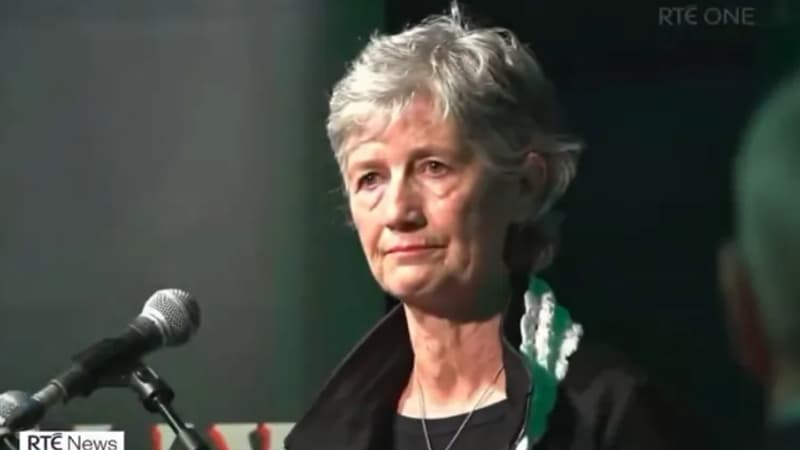Twelve hours. This is the time it has taken Meta (Facebook, Instagram, Whatsapp) to eliminate a deepfake of Catherine Connolly, candidate for the presidential elections in Ireland, according to the Irish Times.
The content appeared on Tuesday, October 21. In this rigged video, produced with artificial intelligence, we can see the independent deputy, a big favorite in the elections, withdrawing from the presidential elections.
30,000 visits
“In the last few minutes, during a campaign event, Catherine Connolly confirmed her withdrawal from the presidential race,” announces in AI version Sharon Ní Bheoláin, news presenter for RTÉ, the Irish public broadcaster. The images generated by AI show Catherine Connolly stating that “with great regret she announces the withdrawal of (her) candidacy and the end of (her) campaign.”
The video then says that the election is cancelled. Heather Humphreys, Ireland’s former Social Protection Minister, was declared the winner of the election by default.
The deepfake was designed to deceive voters and uses RTÉ’s codes and graphic letter. The account that shared it, RTÉ New AI, also borrows the name of the Irish media. Several of the channel’s journalists, such as presenter Sharon Ní Bheoláin and political correspondent Paul Cunningham, were also generated by AI to lend credibility to false information.
The post was viewed almost 30,000 times on Facebook and shared almost 200 times before being deleted… after 12 hours. Mark Zuckerberg’s group clarified that the publication violated its community standards and, in particular, its electoral interference policy.
“A shameful attempt to undermine democracy”
Enough to spark Catherine Connolly’s indignation. “I remain absolutely a candidate for the presidency of Ireland,” she said in a press release on October 22.
According to the BBC, the Irish presidential candidate has also lodged a formal complaint with the Electoral Commission about the video. The European Commission also said it was monitoring the case, according to Politico. “We are aware of the deepfake video and we are in contact with the Irish authorities,” announced European Commission spokesperson Markus Lammert during a press conference on Wednesday, October 22.
In recent years, personality deepfakes, especially political ones, have become increasingly numerous. Kamala Harris and Joe Biden were victims of deepfakes during the 2024 US presidential campaign. Moldova also faced a wave of deepfakes and fake news coordinated by Russia in the run-up to last September’s legislative elections. And the arrival of Sora 2, OpenAI’s new video generator, in October will not help the situation.
Faced with these abuses, companies are trying to establish safeguards. For example, OpenAI has implemented an opt-in policy for the use of an individual’s voice or image in Sora 2. Therefore, all artists and individuals can choose if and how they can be reproduced using AI.
Source: BFM TV


